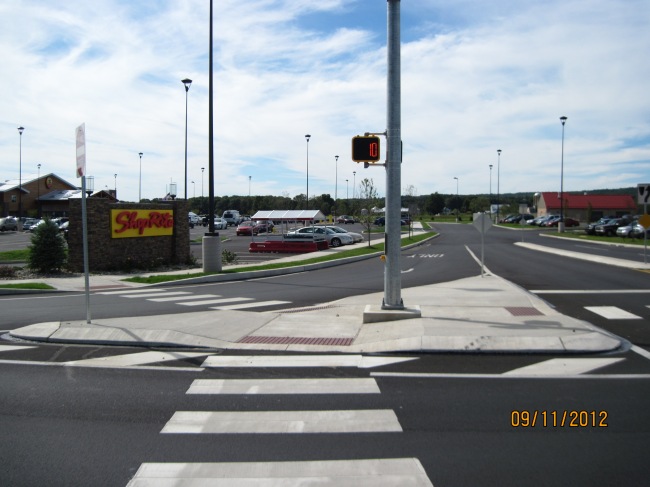 PennDOT regulates activities within their road right-of-way through the issuance of Highway Occupancy Permits. By regulation, a permit is required whenever a access point or utility are installed or whenever other modifications are made to or above the the PennDOT right-of-way.
PennDOT regulates activities within their road right-of-way through the issuance of Highway Occupancy Permits. By regulation, a permit is required whenever a access point or utility are installed or whenever other modifications are made to or above the the PennDOT right-of-way.
Most commonly for Benchmark, these permits involve the construction of a new driveway or other improvements associated with a new development or a municipal improvement project. Many existing driveways and utilities were constructed prior to 1982 when PennDOT began their current permitting requirements. These facilities are generally not “grandfathered” however some municipalities do not require that permits be obtained as part of land development projects for these older facilities unless they are being modified.
Often permits are also obtained when utilities are installed. Most major utility companies (water, gas, electric,sewer) have a contact with PennDOT which assists them in obtaining permits because they are generally routine in nature. Stormwater pipes which cross the PennDOT right-of-way are permitted to the local municipality who is then responsible for the maintenance of those pipes, inlets, and associated structures. Frequently, when a permit is issued for a stormwater pipe related to a development the local municipality will assign the responsibility and cost for maintaining the stormwater pipes to the developer. The Highway Occupancy Permit is still issued to the municipality but the developer enters into an agreement with the municipality.
Benchmark has extensive experience with designing facilities and obtaining permits from PennDOT for new and existing driveways as well as utilities. We have also completed projects involving overhead conveyor facilities crossing PennDOT right-of-ways. Please contact us to discuss your permitting needs. We have successfully prepared Highway Occupancy Permits for numerous private clients, municipalities, and school districts.